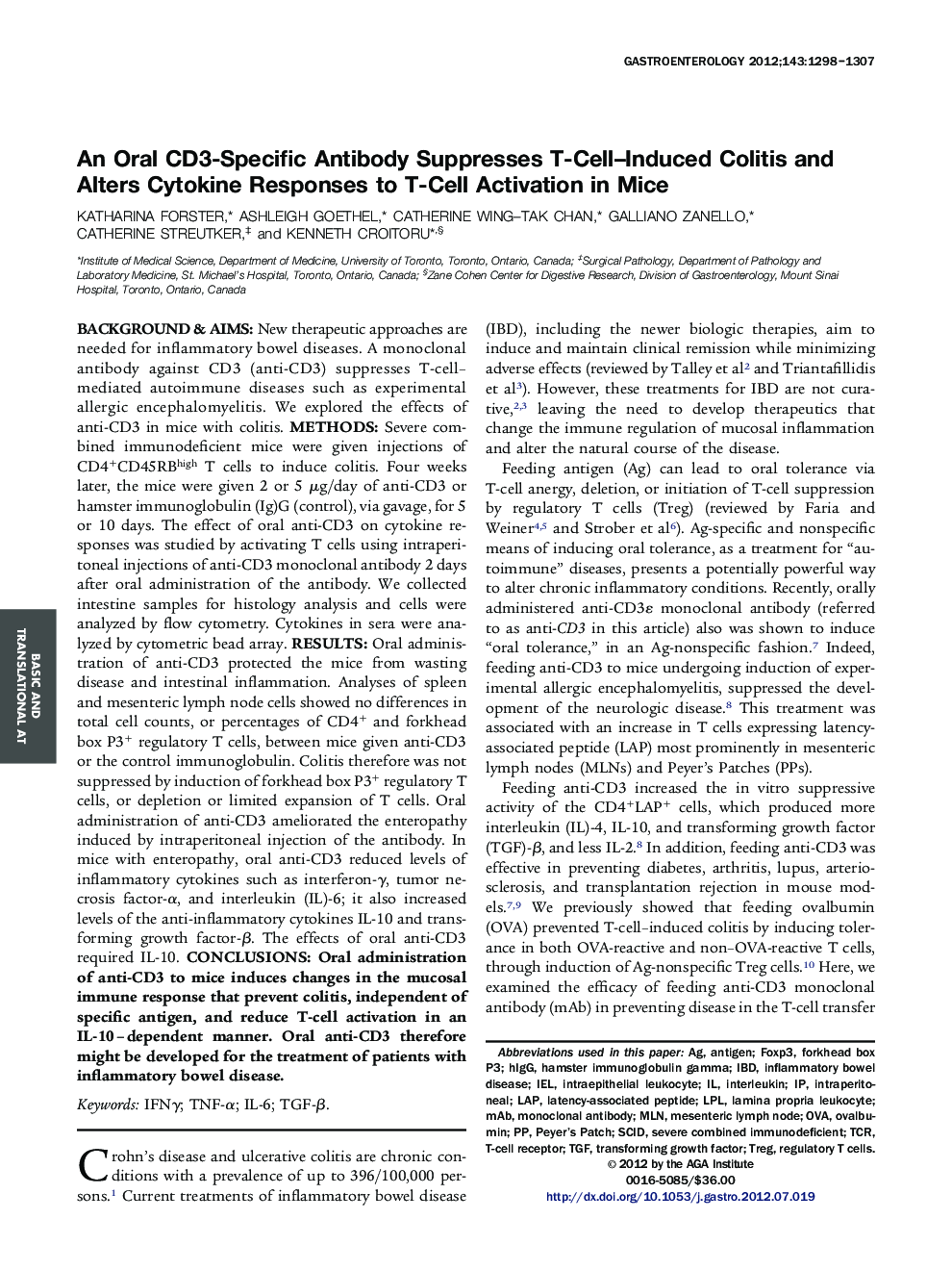| کد مقاله | کد نشریه | سال انتشار | مقاله انگلیسی | نسخه تمام متن |
|---|---|---|---|---|
| 3292962 | 1209806 | 2012 | 10 صفحه PDF | دانلود رایگان |

Background & AimsNew therapeutic approaches are needed for inflammatory bowel diseases. A monoclonal antibody against CD3 (anti-CD3) suppresses T-cell–mediated autoimmune diseases such as experimental allergic encephalomyelitis. We explored the effects of anti-CD3 in mice with colitis.MethodsSevere combined immunodeficient mice were given injections of CD4+CD45RBhigh T cells to induce colitis. Four weeks later, the mice were given 2 or 5 μg/day of anti-CD3 or hamster immunoglobulin (Ig)G (control), via gavage, for 5 or 10 days. The effect of oral anti-CD3 on cytokine responses was studied by activating T cells using intraperitoneal injections of anti-CD3 monoclonal antibody 2 days after oral administration of the antibody. We collected intestine samples for histology analysis and cells were analyzed by flow cytometry. Cytokines in sera were analyzed by cytometric bead array.ResultsOral administration of anti-CD3 protected the mice from wasting disease and intestinal inflammation. Analyses of spleen and mesenteric lymph node cells showed no differences in total cell counts, or percentages of CD4+ and forkhead box P3+ regulatory T cells, between mice given anti-CD3 or the control immunoglobulin. Colitis therefore was not suppressed by induction of forkhead box P3+ regulatory T cells, or depletion or limited expansion of T cells. Oral administration of anti-CD3 ameliorated the enteropathy induced by intraperitoneal injection of the antibody. In mice with enteropathy, oral anti-CD3 reduced levels of inflammatory cytokines such as interferon-γ, tumor necrosis factor-α, and interleukin (IL)-6; it also increased levels of the anti-inflammatory cytokines IL-10 and transforming growth factor-β. The effects of oral anti-CD3 required IL-10.ConclusionsOral administration of anti-CD3 to mice induces changes in the mucosal immune response that prevent colitis, independent of specific antigen, and reduce T-cell activation in an IL-10–dependent manner. Oral anti-CD3 therefore might be developed for the treatment of patients with inflammatory bowel disease.
Journal: Gastroenterology - Volume 143, Issue 5, November 2012, Pages 1298–1307